Each year, Harvard Library’s Pforzheimer Fellowships provide an opportunity for graduate students to work on a library project with a librarian or archivist. This Fellowship offers a chance for recipients to learn about library careers, advance their own research skills, and get to know a library from the inside.
UNCOVERING TOZZER LIBRARY'S MESOAMERICAN INDIGENOUS MANUSCRIPTS
Rebecca Mendoza, PhD Candidate – Study of Religion
Tozzer Library
Library mentors: Susan Gilman
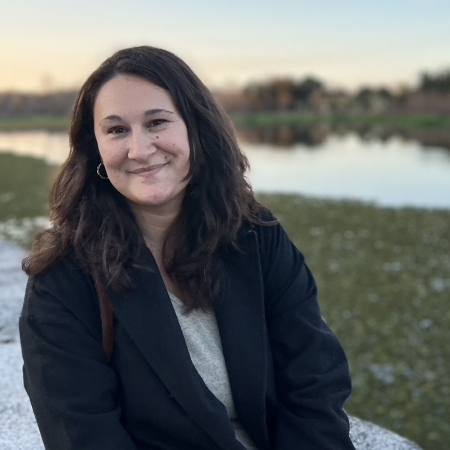
Mesoamerican manuscripts in Indigenous languages are some of the most unique materials in Tozzer Library’s special collections. These works provide insights into the colonial period, primarily in Mexico and Guatemala. The collection includes a range of topics and genres: from early 16th century grammars and vocabularies of Indigenous Languages (such as K’iche’ Maya) to a late 18th century pictorial catechism from central Mexico and a Yucatec herbal medicine manuscript. Rebecca Mendoza spent the summer researching ten original manuscripts and consulting various scholars about these materials. The goal of her research is to make these materials more accessible to descendent communities and other scholars. Thanks to Rebecca’s meticulous work, Tozzer staff will be able to update and expand the catalog records for each item. Tozzer will also launch a CURIOSity site with Rebecca’s findings in the fall of 2025, which will eventually link to digitized versions of the materials.
HOLLIS HALL: ITS HISTORY AND PEOPLE
Corinna Anderson, PhD Candidate - Architecture
Harvard University Archives
Library mentors: Sarah Martin and Ariana Cook
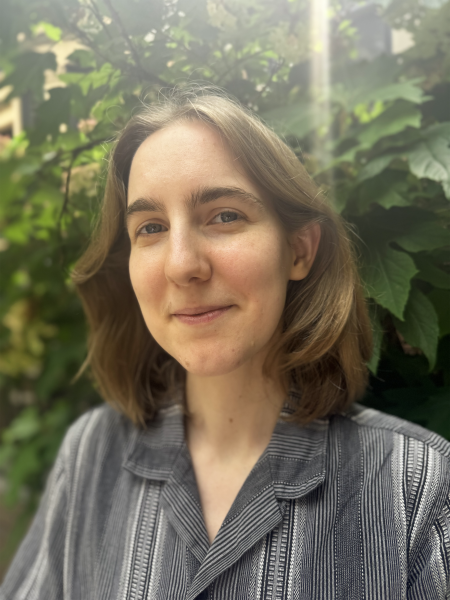
Hollis Hall is one of the oldest buildings on the Harvard campus. Built as a student dormitory in 1763, Hollis served as temporary lodging for a wide variety of individuals including colonial soldiers during the American Revolution and distinguished alumni such as Ralph Waldo Emerson and Henry David Thoreau. The rooms of Hollis have hosted everyday student life at Harvard for over 260 years, and this summer's research helped uncover the story of this structure, its history, and its residents. In the eighteenth and nineteenth centuries, the Hall was the site of student renegotiation of power relationships at a time when Harvard’s rules and educational practices were shifting. Housing both undergraduate students and their tutors, it was where the student-tutor relationship played out, a relationship at the heart of many of the “disorders” that troubled the University community. Hollis was often the headquarters for the plotting of these disorders – where unauthorized class meetings were held, where secret student societies met, and where student bonds of care and relations of distrust were forged. This research project traced the life of the building through this social and institutional history, examining student drawings, governance records, photographs, architectural plans, newspaper articles, student diaries, letters, room condition reports, and pageants and poems commemorating the eighteenth and nineteenth century student experience. The project contributes to the University Archives larger endeavor to explore the history of Harvard's built environment in preparation for the institution's 400th in 2036.
SURVEY OF HOUGHTON LIBRARY'S NATIVE AMERICAN COLLECTIONS
Courtney Gragson, PhD Candidate - History o f Science
Houghton Library
Library mentors: John Overholt
Houghton’s collections related to Native American history and culture have been receiving increasing interest and research use, particularly as Harvard is working to establish partnerships with Native tribal organizations. The goal of this project was to survey Houghton’s collections of Native American materials as thoroughly as possible. Courtney delved into HOLLIS and other collection databases, and met with Houghton staff, to identify the most important materials on Native American history in our collection, creating a database for internal use. She then drafted an introductory guide for the public about these collections, in order to give new users an easily accessible starting point for research utilizing them.
PRESERVING ACADEMIC LEGACY: A STUDY OF THESIS AND DISSERTATION STEWARDSHIP OF HARVARD
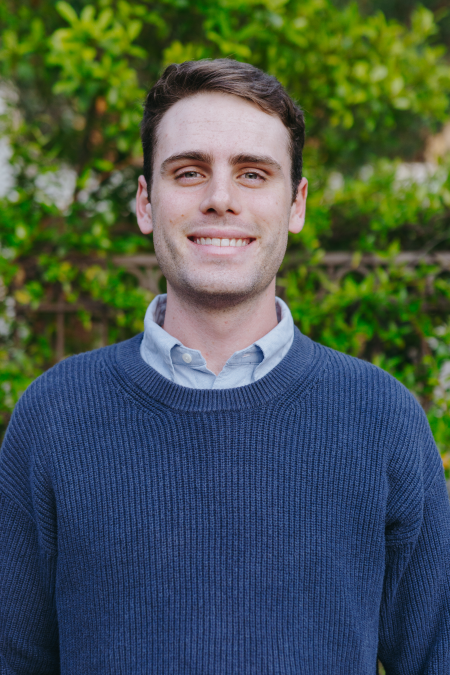
Jordan Vanderpool, PhD Candidate - Romance Languages and Literatures
Open Scholarship and Research Data Services & Harvard University Archives
Library mentors: Colin Lukens
The current process for electronic theses and dissertations (ETD) submission, approval, and archiving at Harvard is decentralized and varies by school. To promote consistent acquisition, discovery, access, and preservation of ETDs, Jordan collaborated with Harvard Library Open Scholarship and Research Data Services (OSRDS) and the Harvard University Archives (HUA) to investigate and document existing ETD workflows and processes—both paper and electronic—across Harvard’s schools. He reviewed ETD submission and curation procedures within the library and individual schools, and interviewed or surveyed nearly fifty administrators, resulting in a substantial collection of stakeholder data. At the conclusion of the project, Jordan will submit a report to OSRDS and HUA outlining issues with ETD submission and workflows, identifying outreach and service gaps, and providing actionable recommendations to improve ETD submission and curation processes across the university.
MAPPING THE WORLD MUSIC INDUSTRY: GEOGRAPHIC PERSPECTIVES ON THE ARCHIVE OF WORLD MUSIC
Natalia Neira Nieto, PhD Candidate - Music
Eda Kuhn Loeb Music Library
Library mentors: Elizabeth Batiuk
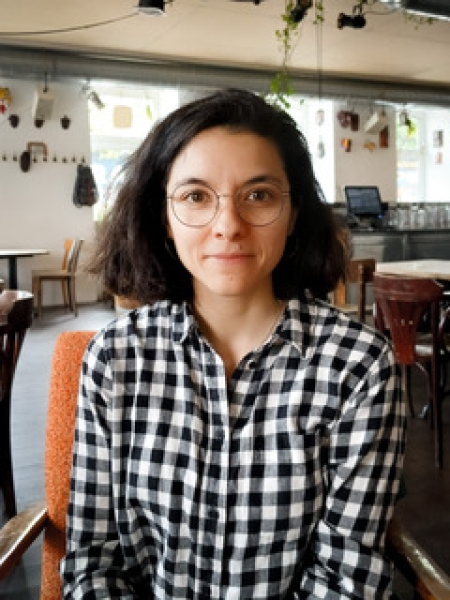
The Archive of World Music (AWM) at the Eda Kuhn Loeb Music Library holds ethnographic collections, many from major figures in the field of ethnomusicology, as well as commercial recordings ranging from historical 78 rpm discs to contemporary popular music from around the world. In May 2025, the AWM acquired the Jacob Edgar-Putumayo World Music collection (circa 1991-2023). Through its releases, the Putumayo record label aimed to introduce US listeners to unfamiliar types of music from across the globe. The Edgar-Putumayo collection at the AWM includes approximately half of the music library amassed by the record company and used to produce their compilation CDs, along with a copy of the database Edgar created to manage the production process. For this project, Natalia Neira Nieto worked on contextual notes for the finding aid, interviewing key figures in the company’s history. In addition, with support from Belle Lipton, GIS Librarian at the Harvard Map Collection, Neira pioneered a mapping project for the AWM, producing a set of five maps using collection data. The first of the maps visualizes the entire corpus of CDs in the Putumayo database according to country of origin of the artists. The next four maps represent the Latin America and Caribbean sections of the collection and show changes across time from 2000 to 2023. Neira’s maps contribute to new perspectives on world music and point the AWM towards developing new ways for patrons to discover items in its collections.
TRANSLATING YAKUT FIELDWORK DESCRIPTION FROM RUSSIAN TO ENGLISH: ILLUMINATING ALEKSEYEV'S YAKUT BACKGROUND
Anna Vichkitova, PhD Candidate - Slavic Languages and Literatures
Eda Kuhn Loeb Music Library
Library mentors: Elizabeth Batiuk and Anna Rakityanskaya
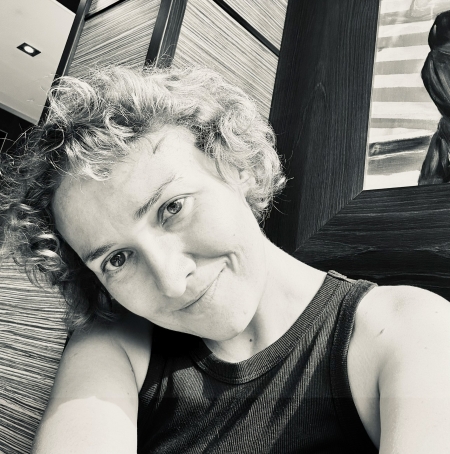
The Eduard Alekseyev Fieldwork Collection of the Musical Culture of Yakutia (1957-1990) is one of the major ethnographic collections held in the Archive of World Music (AWM) at the Eda Kuhn Loeb Music Library. Its detailed description, created by the ethnographer and musicologist Eduard Alekseyev in collaboration with library staff, make it especially valuable. In this project, Anna Vichkitova translated notes by Alekseyev written in Russian which describe seven video tapes. These videos, from the early 1990s, include interviews with master performers in Yakutia, and performances of Ohuokhai (a traditional Sakha call-and-response round dance), and Olonkho (the traditional epic poetry of the Yakut (Sakha) people) among others. Far from a straightforward translation, to understand the bilingual, Russian-Yakut context in which the recordings were created, Vichkitova consulted experts and interviewed Zoya Alekseyeva, the late scholar’s wife and research partner. Vichkitova then produced a glossary of terms that allow the nuances of Yakut culture and cosmology to be elucidated within the Russian to English translation. The translated notes and other materials created by Vichkitova for the finding aid allow the Music Library to provide bi-lingual description and value-added elements which enhance understanding and usability of the collection materials.